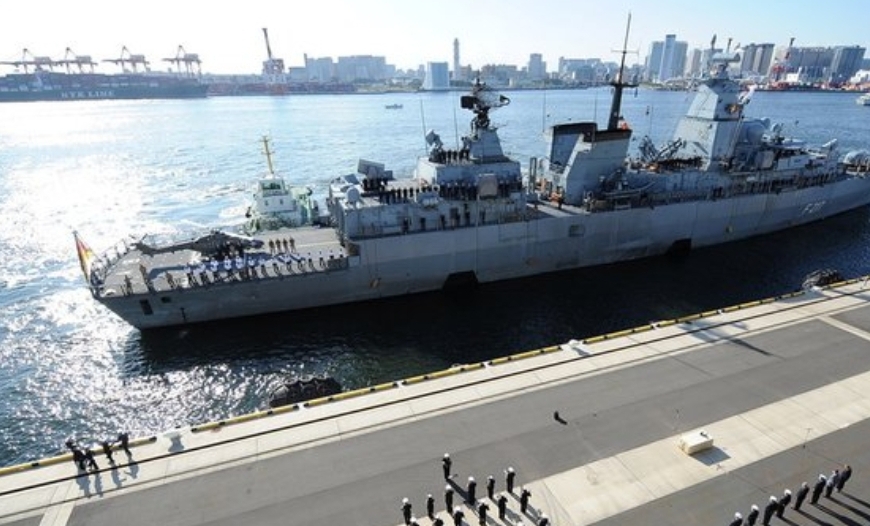
Germany’s naval chief has said the country’s recent deployment of a warship into the South China Sea was a ?teaser? intended to signal to Beijing that Berlin planned to ramp up its military presence in the disputed waters.
Speaking from on board the Bayern frigate on Tuesday, Vice Admiral Kay-Achim Schonbach said the vessel’s foray into the contested region last week – the first such journey in nearly two decades – was a sign that Germany was “perpetuating” its activity in the region in “small steps.”
Hinting at further deployments following the “teaser,” Schonbach said Berlin hoped to dispatch additional ships and aircraft to Asia from 2023. He added that Germany’s primary interest was in maintaining an international rules-based order in the region.
“This time, we start with small steps … probably we’ll pass [the Taiwan Strait] the next time on a bilateral basis,” Schonbach said when asked why the vessel did not sail through the strait. He said the navy was focused on Berlin’s “value partners,” and it was “not starting with a hammer.”
At a separate event on the same day in Singapore – where the frigate is docked at the Changi Naval Base, Schonbach said the intention of the naval tour was not to provoke, but a sign that things had reached a point where Berlin felt the need to send a “signal” to Beijing.
The Bayern set sail for Asia with a crew of 200 in August. The following month, Germany claimed Beijing had denied the Brandenburg-class frigate entry into its harbors, which Schonbach suggested was a “political decision.” He added that he did not have a direct line to his Chinese counterpart.
At the time, Chinese Foreign Ministry spokesman Zhao Lijian had said Beijing attached “great importance to the development of an all-round strategic partnership between China and Germany, including cooperation between the two militaries.”
Although German officials have equated the trip to “standing up” for “values and interests,” an op-ed in China’s state-run Global Times paper last week likened it to a call for “attention” from Beijing. It dismissed the move as an “opportunistic” attempt to seek “free publicity.”
(RT.com)